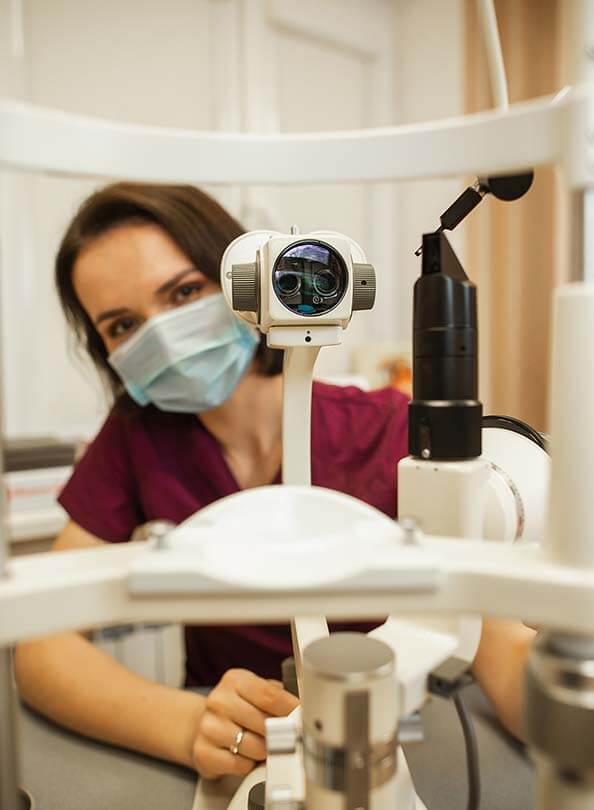Refer a Patient
iScope is currently accepting new patients. A referral from your primary care physician or specialist is required for consultations covered by your provincial plan. If you require rehabilitation services a referral is not required.
The goal of vision therapy is to enhance a person’s comfort and visual performance. A variety of exercises and activities that improve eye and brain coordination and efficiency make up this highly customized treatment.
A vision therapist or optometrist with the necessary training will create a specialized plan for the patient’s visual requirements. Amblyopia, strabismus, and binocular vision abnormalities are a few noticeable disorders that the therapy can help with.
The goal of vision therapy is to enhance the visual skills and abilities needed for everyday activities including reading, writing, and driving. Through routine sessions and exercises done at home, vision therapy can improve eye tracking, attention, and coordination, leading to better visual comfort and less eye strain and tiredness.
The goal of vision therapy is to enhance visual comfort and performance through non-invasive, individualized care. It is designed to cure a number of visual impairments and may lead to improved graphic abilities, making daily tasks more manageable and pleasurable.

The goal of vision therapy is to increase and improve a person’s comfort and visual function. Three crucial aspects of visual therapy are as follows:
Vision therapy is a non-invasive therapy that helps those with learning disabilities improve their visual abilities and skills. Consider the following important points when thinking about how vision therapy can help people with learning disabilities:
In conclusion, those who struggle with learning disabilities may find great success with visual therapy. By enhancing visual processing, enhancing eye tracking and coordination, addressing binocular vision abnormalities, and providing individualized treatment, visual therapy can help people with learning difficulties overcome obvious obstacles and succeed more in their daily lives.
Optometrists are medical professionals with a specialty on eye and vision care. They are adept in identifying various visual defects in the eyes and advising corrective measures like glasses or contact lenses. Langley optometrists also give pre- and post-operative care for eye surgeries, identify and treat eye conditions, and offer advice on preserving excellent eye health.
The following are the primary responsibilities and tasks of an optometrist:
Please don’t hesitate to inquire if you have any specific questions or want to know more about optometry.
Optometrists and ophthalmologists both provide care for the eyes, albeit their training and experience levels vary. Optometrists provide primary eye care in addition to diagnosing common eye conditions and issuing prescriptions for glasses and contact lenses. Ophthalmologists, on the other hand, are medical specialists with a focus on eye and vision care who are capable of performing surgeries and managing complex eye conditions.
Monday: 8:00am – 6:00pm
Tuesday: 8:00am – 6:00pm
Wednesday: 8:00am – 6:00pm
Thursday: 8:00am – 6:00pm
Friday: 8:00am – 6:00pm
Saturday: Closed
iScope is currently accepting new patients. A referral from your primary care physician or specialist is required for consultations covered by your provincial plan. If you require rehabilitation services a referral is not required.
Suite 301 – 1111 Lonsdale Ave North Vancouver, BC V7M 2H4
P: 1-888-550-5508
F: 604-900-7676
Suite 200 – 8837 201 St Langley, BC V2Y 0C8
P: 1-888-550-5508
F: 604-900-7676
Suite 301 – 9639 137A St Surrey, BC V3V 0C6
P: 604-900-7007
F: 604-900-7676
Suite 500 – 89 Queensway West Mississauga, ON L5B 2V2
P: 1-888-550-5508
F: 416-900-7006
© Copyright 2023 Iscope Concussion and Pain Clinics. All Rights Reserved